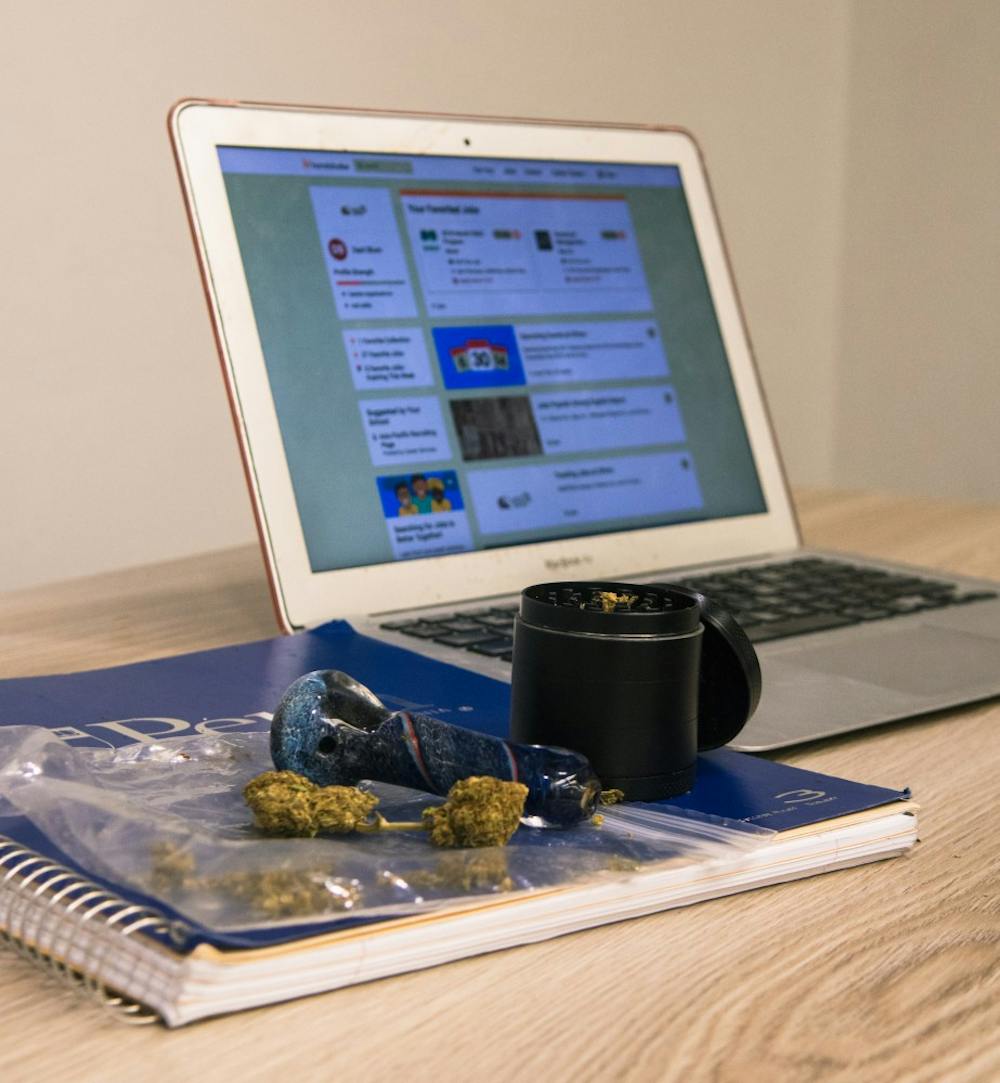Imagine your stereotypical stoner: old hoodie, grease–stained sweatpants, and red, burnt out eyes. This is not what Marc* (C '18) looks like, especially not in his sleek, suited–up profile picture. But Marc's a daily marijuana smoker—or, at least, he was, before he decided to OCR.
Marc spent the previous summers interning at a start–up and conducting research at the university. Now a senior, he has decided to recruit for a post–grad career in consulting. Unlike his previous jobs that did not conduct drug tests, he expects his full–time job to require him to be clean before signing.
“The moment I decided, tomorrow I am going to an information session and starting this job search, I completely stopped. I had one last smoke sesh the night before.” Marc said. After hearing horror stories of drug testing gone wrong, Marc would rather play it safe than sorry.
“One of my really good friends got a job in engineering at an oil company. He wasn’t expecting to get the job, but then he did. So the night before, he did a ton of blow,” Marc recalled. “They were going to hair test him, so it wasn’t going to out of his system in three days. He went to a place downtown and got waxed head to toe, completely hairless.”
Marc has not smoked for the last month, ensuring clean results if tested. With second round interviews at top consulting firms coming up, he intends to start smoking again once he gets an offer. “The moment I find out they don’t drug test and I sign, I know for a fact I will be rolling a joint.”
While there is an increasing number of states legalizing marijuana, companies still have the right to drug test and deny employment to those who fail. In some states that have legalized medical uses, like Pennsylvania, those who are prescribed weed still aren't protected from workforce drug tests. However, some employers in legal states have rethought their drug–testing policy in light of changes in legislation and social norms.
“I know a lot of small start–ups in California actually encourage it," Marc says. "I also have a friend working at a different consulting firm, and he said he gets high before his cases.”
Marc plans to continue smoking once he's in the work force. “I am very productive when I smoke," he says. "I do most of my work high." He also smokes to just relax. “It lowers anxiety and that’s why I smoke, being at Penn is kind of stressful. Instead of blacking out five days a week, I might just want to smoke.”
For other students at Penn, smoking constitutes a part of social life. In the past, Lucy* (E’ 18) filled her lazy summer days lighting up with her brother in her backyard. This summer, she spent her busy work days interning at an energy company. When the internship required a drug test, she gave up smoking until she could prove she was clean. “I didn’t think about it too much," she says. "It was not hard for me to say no to drugs.”
While she enjoys the substance, Lucy describes herself as only a social smoker. She does not buy for herself, and she views smoking as a common activity for hanging out with friends.
“My brother thought I was extra lame and so did my guy friends, but I made the conscious decision that I am not going to do this,” Lucy said.
Like Lucy, Marc also sees pot as a social equivalent to alcohol. “At this point, [smoking] is like going out and getting a drink or going to a bar. So instead of drinking, you hang out and smoke weed."
With one in eight Americans currently smoking marijuana, many like Marc hope for a more relaxed attitude in the future towards the drug. In the meantime, Marc won't be turning down any jobs on the basis of drug policy.
"I hope wherever I am working has a relax environment with smoking. I am not going to say it’s a reason why I would apply or choose a location, that would be really dumb of me. But I think it is an added perk."
*Reflects names has been changed

